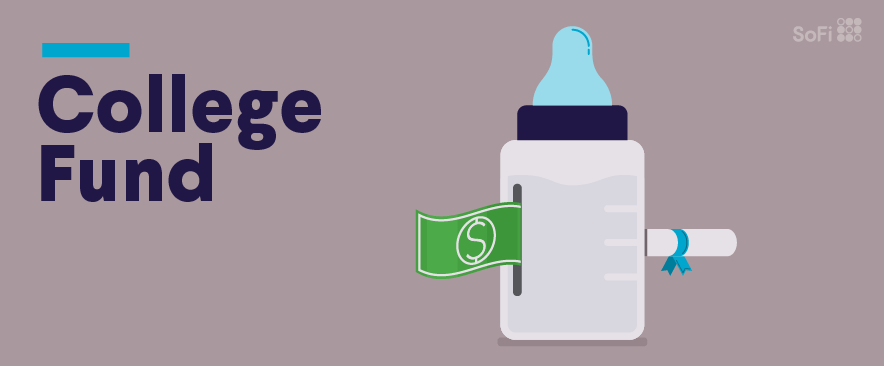Doctors tend to make a good amount of money. For instance, primary care physicians report earning about $281,000 a year while specialists make approximately $398,000 annually, according to a 2025 survey from Medscape.
But compared to other high-earners, doctors also have high amounts of student debt. Med school graduates owe an average of $243,483 in student debt, reports EducationData.org. In addition, physicians spend extra years in school, rather than building equity in their future, such as having a 401(k) or an IRA.
That’s why it makes sense to know how to save money on taxes as a doctor and learn about physician tax deductions.
Here are five easy ways doctors can save on taxes, plus tax deductions for doctors.
Key Points
• Doctors can reduce their tax burden by contributing to various tax-advantaged retirement accounts.
• Establishing a 529 plan for children’s education expenses can provide tax savings.
• Self-employed doctors should deduct all business-related expenses to minimize taxes.
• Doctors should evaluate the tax implications of long-term versus short-term capital gains.
• Donating appreciated investments to charity can offer significant tax benefits.
1. Contribute to multiple tax-advantaged retirement accounts.
One way to save? Instead of only paying into one company-sponsored 401(k) or 403(b) plan, spread your retirement savings across as many tax-advantaged accounts as you can. By having multiple accounts like this, you can substantially increase your savings each year.

2. Consider a 529 plan account to save for children’s college funds.
A 529 account grows tax-free when used for qualifying educational expenses. You might even get a tax deduction on your state taxes the year you fund it. Check your local tax laws to find out more.

3. If you own a practice or you moonlight, consider deducting all business-related expenses.
For physicians, owning a practice comes with a perk: tax deductions for doctors. Think advertising, licensing fees, board exam fees, website fees, subscriptions to professional publications, dues and memberships to medical associations, and traveling to conferences. The general strategy is to deduct as much on Schedule C or your personal tax return as allowable.

4. For investments, consider the tax benefits of long versus short term gains.
Owning an investment for more than one year means any profit will qualify as a long-term gain. That makes sense. What’s important to consider is that long-term capital gains are typically taxed at lower rates than short-term capital gains (which are taxed at your ordinary income rate). For those with portfolios to manage, this is one factor worth keeping in mind.

5. For charitable donations, don’t forget you can donate investments.
Most people know that donating cash or used items qualifies as a tax deduction. But for physician tax deductions, it’s good to remember you can donate appreciated stocks and funds. In this case, you can gain a double tax benefit by getting a tax deduction for the gift—and avoiding the capital gain on the sale.
Another way to possibly save money is with student loan refinancing. When you refinance, you replace your existing student loans with a new loan, ideally with a lower interest rate and better terms.

Should you refinance your student loans? One very important thing to keep in mind is that refinancing federal student loans makes them ineligible for federal protections and programs, like income-driven repayment plans. If you think you may need these federal benefits, refinancing may not be right for you.
This student loan refinancing guide may be helpful as you weigh your options.
If you decide to explore refinancing, this student loan refinance calculator can help you figure out what you might save. For instance, a lower interest rate or a longer loan term may help lower your monthly payment. However, a longer loan term means you may end up paying more interest over the life of the loan.
This student loan refinancing guide may be helpful as you weigh your options.
If you decide to move forward with refinancing your student loans, SoFi offers flexible terms and no origination or prepayment fees.
FAQ
How can doctors reduce their taxes?
Doctors can reduce their taxes by taking such steps as contributing to multiple tax-advantaged retirement accounts, deducting business expenses if they own their own practice, opening a 529 plan to save for their children’s education, exploring long-term vs. short-term capital gains when it comes to investments, and donating investments.
What can you write off as a doctor?
Tax deductions you can write off as a doctor include board exam fees, memberships and dues to medical associations, traveling to conferences, licensing fees, and fees for professional publications.
Why do doctors get taxed so much?
Doctors may pay more in taxes because they typically earn high salaries. For example, primary care physicians make about $281,000 a year, while specialists make around $398,000. Tax-saving strategies such as contributing to tax-advantaged retirement accounts, taking work-related tax deductions, and making charitable contributions may help lower a doctor’s tax bill.
SoFi Student Loan Refinance SoFi Loan Products
Terms and conditions apply. SoFi Refinance Student Loans are private loans. When you refinance federal loans with a SoFi loan, YOU FORFEIT YOUR ELIGIBILITY FOR ALL FEDERAL LOAN BENEFITS, including all flexible federal repayment and forgiveness options that are or may become available to federal student loan borrowers including, but not limited to: Public Service Loan Forgiveness (PSLF), Income-Based Repayment, Income-Contingent Repayment, extended repayment plans, PAYE or SAVE. Lowest rates reserved for the most creditworthy borrowers. Learn more at SoFi.com/eligibility. SoFi Refinance Student Loans are originated by SoFi Bank, N.A. Member FDIC. NMLS #696891 (www.nmlsconsumeraccess.org).
SoFi loans are originated by SoFi Bank, N.A., NMLS #696891 (Member FDIC). For additional product-specific legal and licensing information, see SoFi.com/legal. Equal Housing Lender.
Third-Party Brand Mentions: No brands, products, or companies mentioned are affiliated with SoFi, nor do they endorse or sponsor this article. Third-party trademarks referenced herein are property of their respective owners.
Non affiliation: SoFi isn’t affiliated with any of the companies highlighted in this article.
Tax Information: This article provides general background information only and is not intended to serve as legal or tax advice or as a substitute for legal counsel. You should consult your own attorney and/or tax advisor if you have a question requiring legal or tax advice.
Financial Tips & Strategies: The tips provided on this website are of a general nature and do not take into account your specific objectives, financial situation, and needs. You should always consider their appropriateness given your own circumstances.
External Websites: The information and analysis provided through hyperlinks to third-party websites, while believed to be accurate, cannot be guaranteed by SoFi. Links are provided for informational purposes and should not be viewed as an endorsement.
SOSLR-Q225-064
